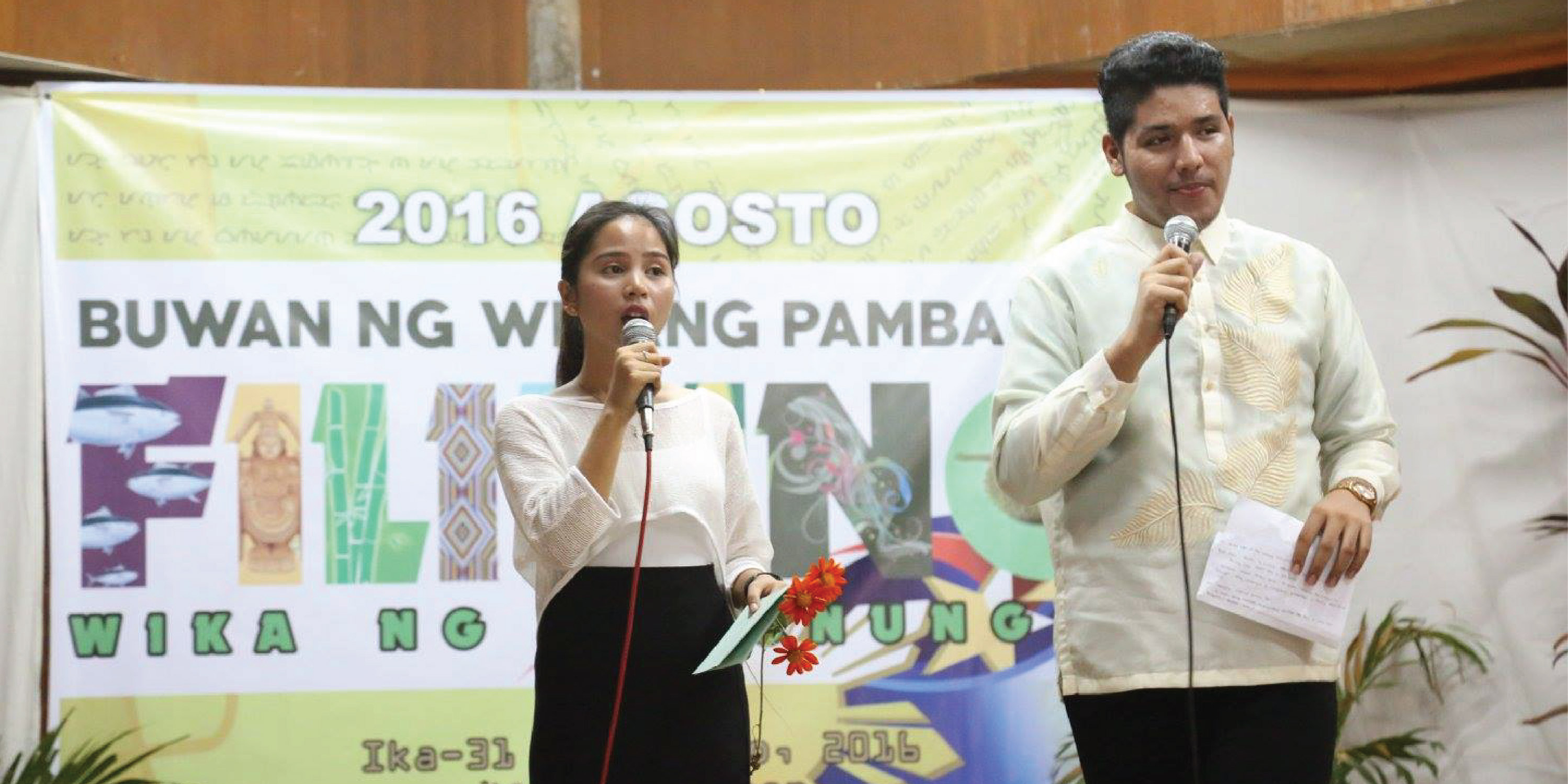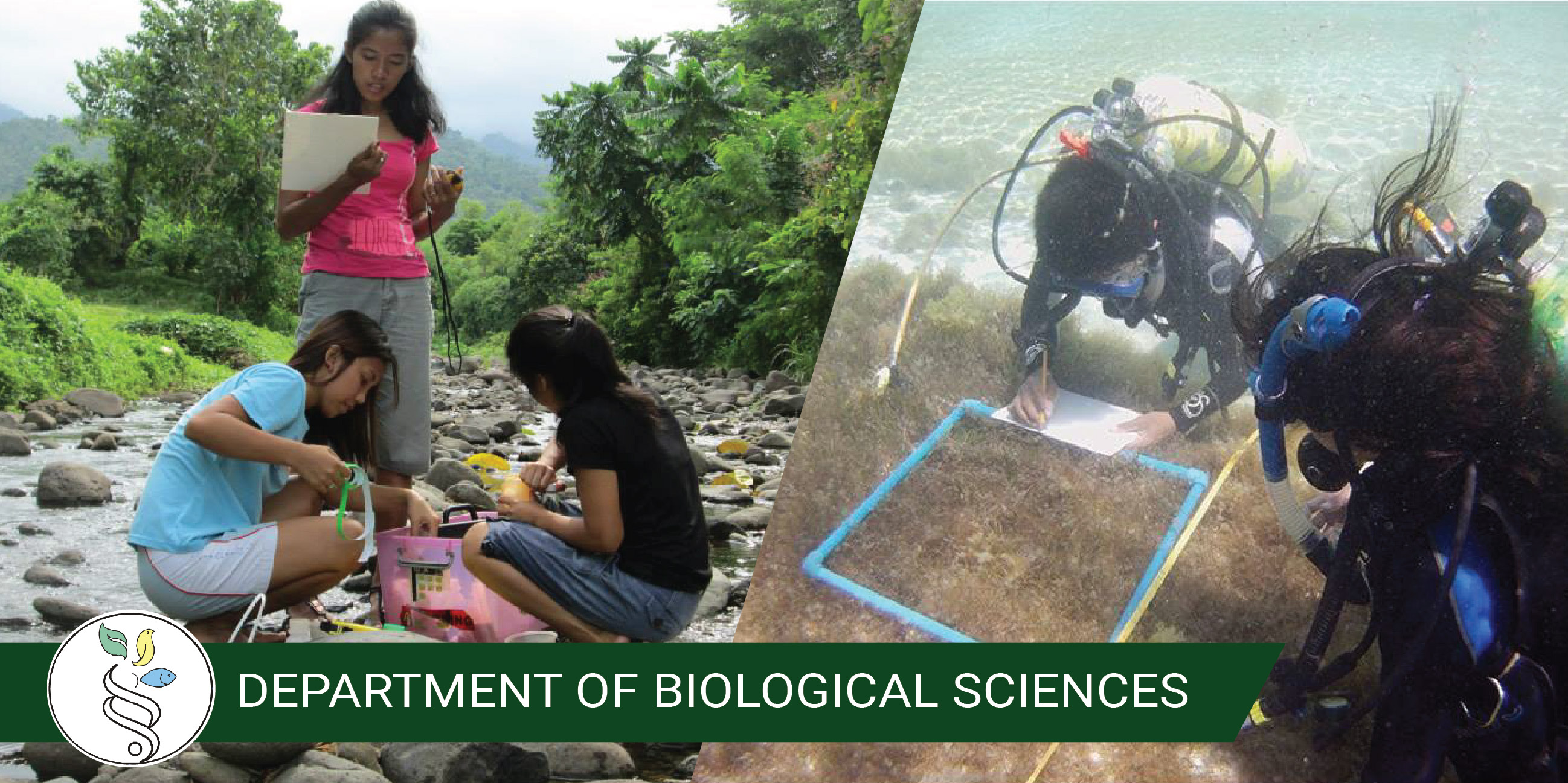Department of Liberal Arts and Behavioral Sciences

The Department of Liberal Arts and Behavioral Sciences at VSU is a service department that takes care of all General Education (GE) courses of all students enrolled in various degree programs.
Vision, Mission & Goals
Degree Offerings
Bachelor of Arts in English
Master of Science in Language Teaching
Sections
- English
- Filipino
- Social Science
Courses/Subjects Offered
Department of Biological Sciences

The Department of Biological Sciences is a conglomeration of four sections: Botany, Genetics, Microbiology and Molecular Biology, Marine Biology, and Ecology. It offers the Bachelor of Science in Biology program with its three major fields of specialization: Marine Biology, Botany and Ecology.
Together with the Department of Pure and Applied Chemistry and the College of Education, the department is also offering Bachelor of Secondary Education major in Chemistry-Biology. It is also jointly offering Bachelor of Science in Agriculture major in Agricultural Botany, with the College of Agriculture. The Department also offers two graduate programs: Master of Science major in Botany and Master in Biology (MBio) which is a non-thesis Graduate program offered in partnership with the Leyte Normal University Graduate School. This latter program aims to upgrade the academic qualifications of tertiary faculty members of state colleges and universities.
Vision, Mission & Goals
Degree Offerings
Bachelor of Science in Biology with majors in:
Marine Biology
Botany
Ecology
Master of Science in Botany
Sections
- Genetics, molecular biology and microbiology
This section includes three related disciplines on the molecular aspect of the cell, focusing on gene expression and regulation and molecular techniques and analysis; biotechnology applications; and techniques in culture and identification of microorganisms with emphasis on bacteria and microscopic fungi. This section also offers graduate subjects for the Master in Biology (MBio) program. - Ecology
The ecology section serves a variety of undergraduate students, including both biology majors and non-majors throughout the university. This section deals with courses on terrestrial and aquatic ecosystems and resource conservation and management. Field work and conservation and assessment of status of different types of ecosystems focusing on nearby areas in Leyte are also introduced through this section. - Botany
This section strives for excellence in teaching in plant physiology and development, ecology and systematics which includes plant identification and training on herbarium preparation and plant conservation. Instruction is also enhanced through access with the botanical garden and herbarium situated in the department. - Marine Biology
This section provides interdisciplinary background in marine biology through traditional courses and experimental learning programs further enriched by access to the Marine/ Aquatic laboratory situated at the lower campus and modern field equipment for terrestrial and aquatic sampling and research. This section also conducts Marine Resource Assessment and Monitoring, Participatory resource, ecological and livelihood assessment, Water analysis, Open-water SCUBA lead by a resident faculty of the department, environmental education and training, marine sanctuary establishment and coastal resource management.
Facilities
The facilities of the Department include the main building that houses 2 lecture and 4 laboratory rooms, 1 herbarium, 1 green house, 1 preparation room containing modern laboratory equipment, conference room and library and 10 faculty offices. The department has access to the Marine Laboratory with modern equipment for aquatic sampling research with underwater documentation facilities, speedboat and SCUBA diving gear.
Department of Basic Veterinary Sciences

The Department of Basic Veterinary Sciences consist of the Basic Veterinary Medicine courses such as Anatomy, Physiology, Pharmacology and Zootechnics. In terms of courses, the DVBS consists of subjects that are taken up in the third and fourth year DVM students.
Section
- Pharmacology/Physiology
- Gross Developmental Anatomy
- Zootechnics
Course offerings
- Basic Veterinary Medicine Courses
- Anatomy
- Physiology
- Pharmacology
- Zootechnics
Department of Veterinary Paraclinical Sciences

The Department of Veterinary Paraclinical Sciences consists courses including Microbiology, Virology and Parasitology.
Sections
Paraclinical Sciences
- Bacteriology/Epidemiology
- Immunology/Virology
- Parasitology/Pathology
- Public Health
Course Offerings
Paraclinical Courses
- Microbiology
- Virology
- Parasitology
- Pathology
Major Offering: Doctor of Veterinary Medicine (DVM)
Institute of Strategic Research & Development Studies


In recognition of the cross-cutting role of social science in agricultural RDE, the Institute of Strategic Research and Development Studies (ISRDS) takes on an orchestrating part in stirring critical thinking across disciplines and commodities by mapping out urgent issues and problems that require timely and appropriate responses. Specifically, it focuses on the complex RDE issues of rural poverty and the impacts of local governance, human capital development, energy and water to achieve sustainable agricultural progress in rural communities. In addition to its primary functions in research and extension, the ISRDS is expanding its mandate since June 2004, to offer degree courses thereby influencing young minds towards positive transformation in agriculture through quality higher education.
Vision, Mission & Goals
Divisions
- Strategic RDE Socio-economics Policy Division with five sections that deal on thematic programs:
- Local Governance
- Human Capital Development
- Water
- Energy
- Poverty
- Instruction Division with three sections:
- Masteral Curricular Program
- Rural Sociology and Development Anthropology Program
- Development Policy Studies Program Undergraduate Program Non-degree Program
- Undergraduate Program
- Non-degree Program
- Masteral Curricular Program
- Knowledge Dissemination Division
Strategic Research and Development Focus
- Rural Poverty. ISRDS strives to achieve greater understanding of the phenomenon of rural poverty and its implications to national development. The end in view is to enable policymakers, program implementers, academicians, students, and the indigents themselves to contribute to the solution of persistent poverty especially in the rural areas.
- Human Capital Development. ISRDS seeks to critically look at the state of human capital development. We analyze the contributions of both the formal and nonformal education systems in order to determine what needs to be done and to advocate policies that promote human capital development for the agriculture and natural resources sectors.
- Local Governance. ISRDS R&D team aims to generate knowledge around the improvement of the efficiency and effectiveness of local governance to effect agricultural and rural development, and people empowerment.


